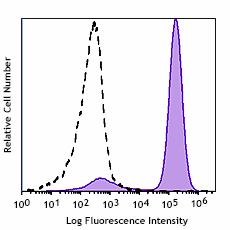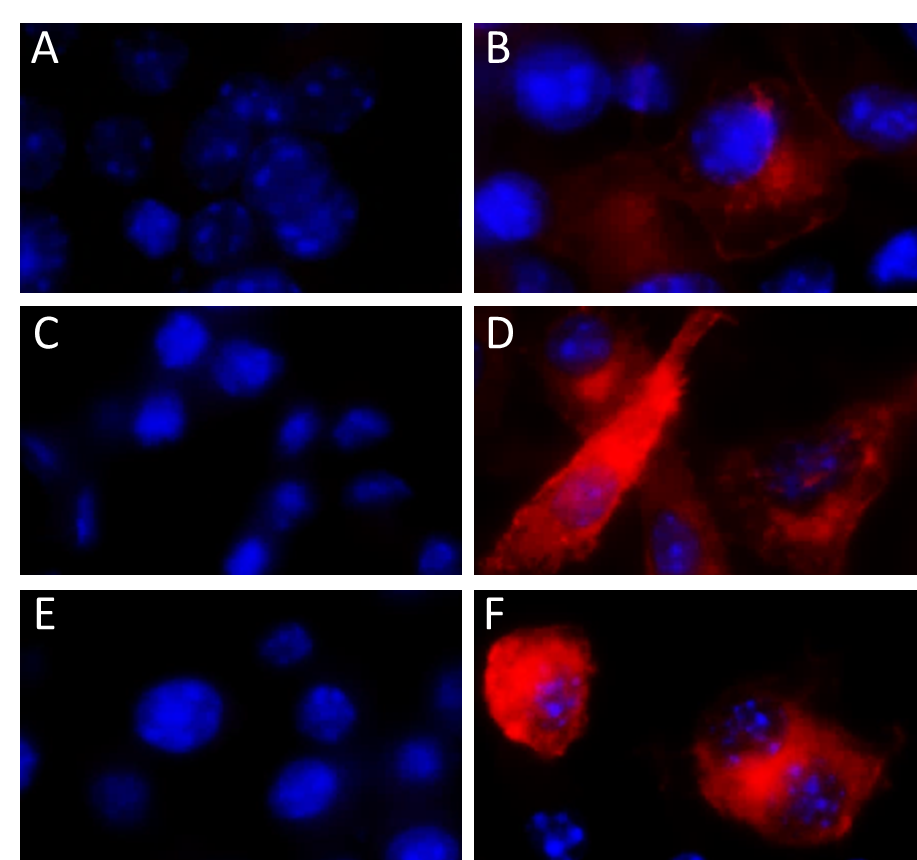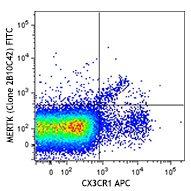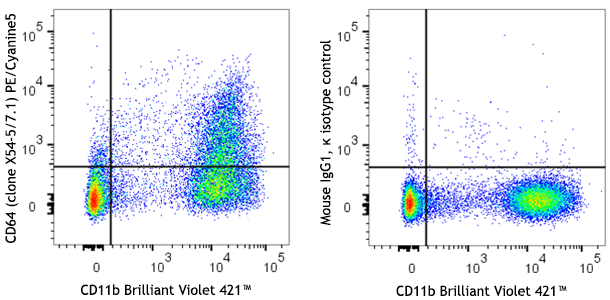- Regulatory Status
- RUO
- Other Names
- Streptavidin- PE/Fire™, SAv- PE/Fire™ 810, streptavidin PE/Fire™ 810
- Ave. Rating
- Submit a Review
- Product Citations
- publications

-

Human peripheral blood lymphocytes were stained with biotinylated anti-human CD3, followed by SAV-PE/Fire™ 810 (filled histogram), or biotinylated mouse IgG1, κ isotype control, followed with SAV-PE/Fire™ 810 (open histogram). -

Human peripheral blood lymphocytes were stained with anti-human CD8 FITC and biotinylated anti-human CD3 (left) or biotinylated mouse IgG1, κ isotype control (right), followed with SAV-PE/Fire™ 810.
Streptavidin is a 52.8 kDa tetrameric protein obtained from Streptomyces avidinii. It binds to biotin with a very high affinity and is one of the strongest interactions in nature with a dissociation constant of 10-14 mol/L. It is used to detect biotinylated proteins in a wide range of applications.
Product DetailsProduct Details
- Verified Reactivity
- Human, Mouse, Rat, All Species
- Formulation
- Phosphate-buffered solution, pH 7.2, containing 0.09% sodium azide
- Preparation
- Streptavidin is conjugated with PE/Fire™ 810 under optimal conditions.
- Concentration
- 0.2 mg/mL (concentration relates to the Streptavidin only component of the conjugate)
- Storage & Handling
- The Streptavidin PE/Fire™ 810 solution should be stored undiluted between 2°C and 8°C, and protected from prolonged exposure to light. Do not freeze.
- Application
-
FC - Quality tested
- Recommended Usage
-
This streptavidin product is quality control tested by immunofluorescent staining with flow cytometric analysis. The concentration provided is based upon molecular mass of streptavidin independent of any additional molecular mass that might be added by the PE/Fire™ 810 conjugation. For flow cytometric staining, the suggested use of this reagent is ≤ 0.125 µg per million cells in 100 µL volume. It is recommended that the reagent be titrated for optimal performance for each application.
* PE/Fire™ 810 has a maximum excitation of 488/561 nm and a maximum emission of 810 nm.
Excessive exposure to light, and commonly used fixation, permeabilization buffers can affect PE/Fire™ 810 fluorescence signal intensity and spread. Please keep conjugates protected from light exposure. For more information and representative data, visit our Fire Dyes page. - Excitation Laser
-
Blue Laser (488 nm)
Green Laser (532 nm)/Yellow-Green Laser (561 nm)
Antigen Details
- Gene ID
- NA
- UniProt
- View information about Biotin on UniProt.org

















Follow Us